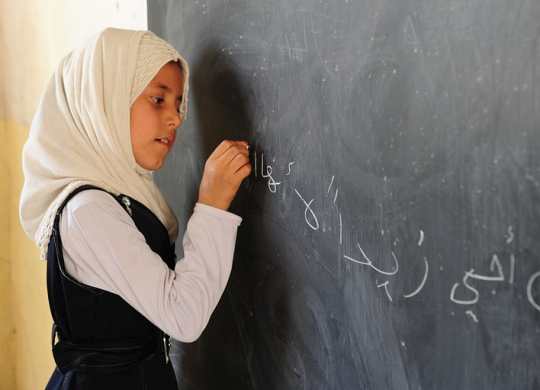Education and the education system in the Republic of Chad: international schools, recommendations for foreign residents

The Republic of Chad is a small state located in Central Africa. For 24 years, the country survived a civil war involving France, Libya, and some northern Arab regions, and finally gained its independence. But, unfortunately, today it is one of the poorest countries on the African continent. Many factors make Chad such a state where the process of improving the quality of life and education of the local population is an incredible challenge. The main barriers to gaining knowledge can be listed as follows:
• poor infrastructure of educational institutions;
• overcrowding in classes (64 children per grade in cities and an average of 100 students per grade in rural areas);
• lack of teaching staff and highly skilled workers;
• lack of necessary materials for teaching;
• too fast change of programs and teaching methods;
• poor funding of government bodies in the educational system;
• frequent absences of teachers from work.
Although education is compulsory in Chad, few children, especially boys, continue to study beyond primary school. Fewer girls than boys enter secondary school, mainly because of early marriages. This is both a public funding problem and the reluctance of many people to send their children to school. The literacy of the entire population is 25.7%, while among men literacy is 40.8%, and among women - only 12.8%
Education in Chad: talk about international schools
There are 2 forms of education in the country, as in almost all African countries, which are controlled by the Ministry of Education of the Republic of Chad:
• state;
• private.
The educational process in the state of Chad is modeled after the French system, and the language of instruction is French. Primary education lasts 6 years, followed by either general secondary education (7 years) or secondary technical and vocational education (6 years).
The Ministry of Education approves all school programs for private and public educational institutions, admission to which is organized through examinations and on a competitive basis. It should also be noted that only the state has the right to issue diplomas up to the bachelor's level (baccalaureat).
An ideal solution for an international student can be private international schools in Chad. Some local people may study here, but such institutions are more suitable for emigrants. Schools usually follow the curriculum model from the US, UK, France, Canada, Australia, and New Zealand. Primary education is conducted in English, French, Spanish, German, or Japanese. Of the leading institutions in the capital of N'Djamena, it is worth highlighting:
1. American International School of N'Djamena (AISN). This is the most sought-after international school in the capital of the country, which offers an educational program according to American standards from preschool to grade 8. Education is conducted mainly in English and includes a French language program. AISN is a non-profit association governed by a six-member school board, including two representatives from the US Embassy.
2. N'Djamena English International School (NEIS) is an English language school where teachers with high qualifications and a professional level of knowledge of English language work. The team of teachers has a variety of skills and talents, always striving to meet the intellectual, physical, and moral needs of students.
3. French language schools Lycée Montaigne Ndjamena. The institution is organized in cooperation with the Embassy of France and the Ministry of Education of Chad. Graduates receive a degree for which they can continue their studies in France.
The admissions and enrollment process varies from school to school. Seats are often limited and preference may be given to students based on nationality. Tuition is generally expensive by local standards but offers a high standard of education, small class sizes, excellent facilities, and extracurricular activities.
Recommendations for foreign residents
When planning a trip to Chad to get an education, we recommend that you purchase a checklist that details the requirements for entering the country. To study at one of the institutions, international students must obtain a student visa from any Chadian diplomatic mission in their country of residence. Required documents for this:
1. Valid passport (minimum 2 blank pages, passport validity 6 months).
2. Passport size photos - 2 pieces.
3. Proof of sufficient funds to cover your stay in Chad (eg bank statement or letter from sponsor).
4. Properly completed application forms with a signature and all details.
5. International Yellow Fever Vaccination Certificate.
6. Vaccinations against hepatitis A and B, typhoid fever, malaria, and rabies.
7. Certificate of enrollment in an educational institution in Chad.
8. Certificate of international health insurance policy for the entire period of study in the country. You can buy insurance with one click on the website.
In addition, mandatory police registration is required for travelers of all nationalities within 72 hours of arrival in Chad. For more information, please contact us for legal advice (Education).
Recommended articles
3 min
Education
Study in Ireland in 2024: Benefits, How to Apply, Visa Requirements and Scholarships Available
Ireland is a great country for international higher education because it offers high quality education, relatively low tuition fees, and good prospects for further development. In addition, students can legally work in the country while studying. Find out all about the rules and conditions for international students in Ireland in 2024
28 May. 2024
More details6 min
Education
5 min
Work
5 min
Travels
All materials and articles are owned by VisitWorld.Today and are protected by international intellectual property regulations. When using materials, approval from VisitWorld.Today is required.